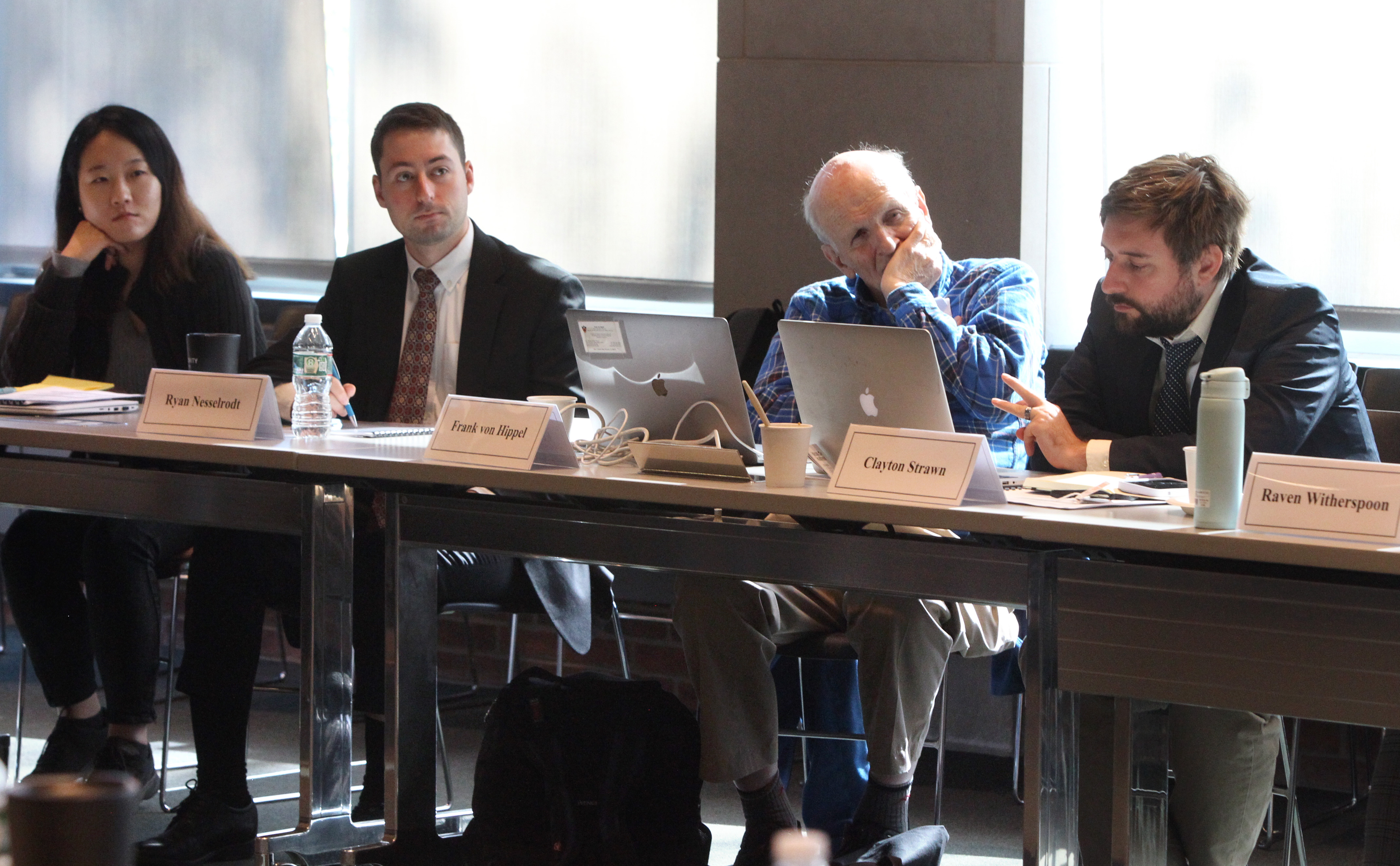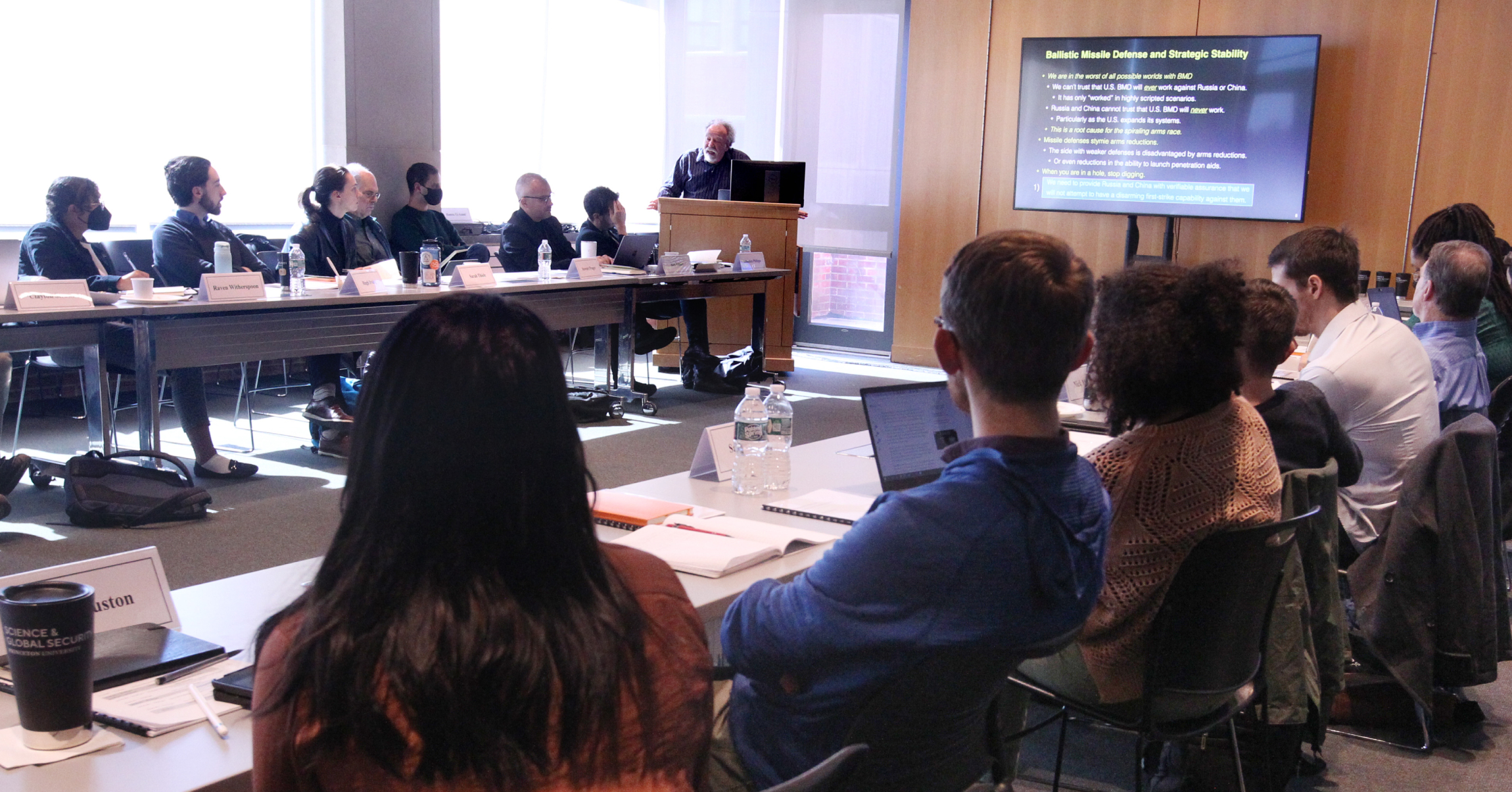December 16, 2023
In October, the Program on Science and Global Security (SGS) hosted the Princeton School on Science and Global Security 2023. Launched in 2020 and held annually, the School’s mission is to train next-generation scientists and engineers from around the world in technical perspectives on understanding, reducing and ending the threat from nuclear weapons.
The 2023 School included 17 student participants from seven countries, all of whom presented their work and participated in the discussions. There were 11 overview lectures by senior researchers and invited nuclear policy experts. The topics included challenges of current nuclear deterrence choices; arms control and disarmament policies; strategic nuclear, conventional, and hypersonic weapons; monitoring and verification of nuclear warheads, facilities and programs, including nuclear archaeology and forensics; vulnerability of space-based systems; and the humanitarian and ecological consequences of nuclear weapon testing, nuclear weapon use, and nuclear facility accidents.
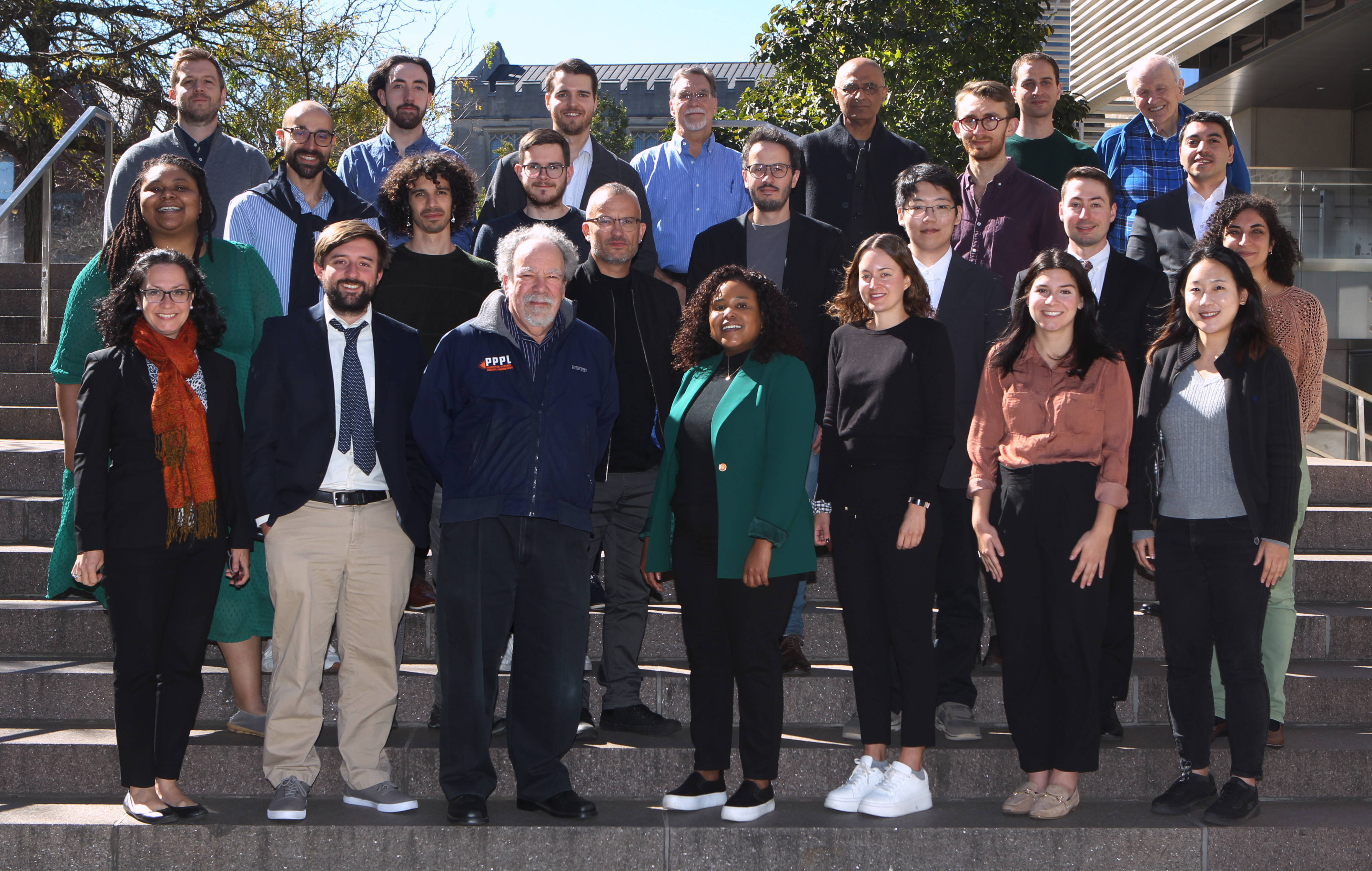
The School traces its origins to discussions in the late 1980s between SGS co-founder Frank von Hippel and Soviet physicist Roald Sagdeev on the need for a new generation of scientists knowledgeable about arms control issues. The first International School on Science and World Affairs was organized by the forerunner of SGS together with the Moscow Institute of Physics and Technology and held in September 1989 outside Moscow. The second School was held in Princeton in 1990. For thirty years afterwards, the School was organized annually by the Union of Concerned Scientists. Altogether, over 500 scientists and researchers from over 40 countries have participated in these meetings.
Zia Mian, physicist and co-director of SGS, said “The idea behind the school is to prepare young scientists to understand and challenge dangerous and deeply entrenched nuclear weapons policies and institutions and to cooperatively address the global risks created by nuclear weapons. It aims to foster an international network of researchers in academia, government, international organizations, and non-governmental organizations able to engage and inform nuclear policy debates and decision-making in their own countries and globally.”
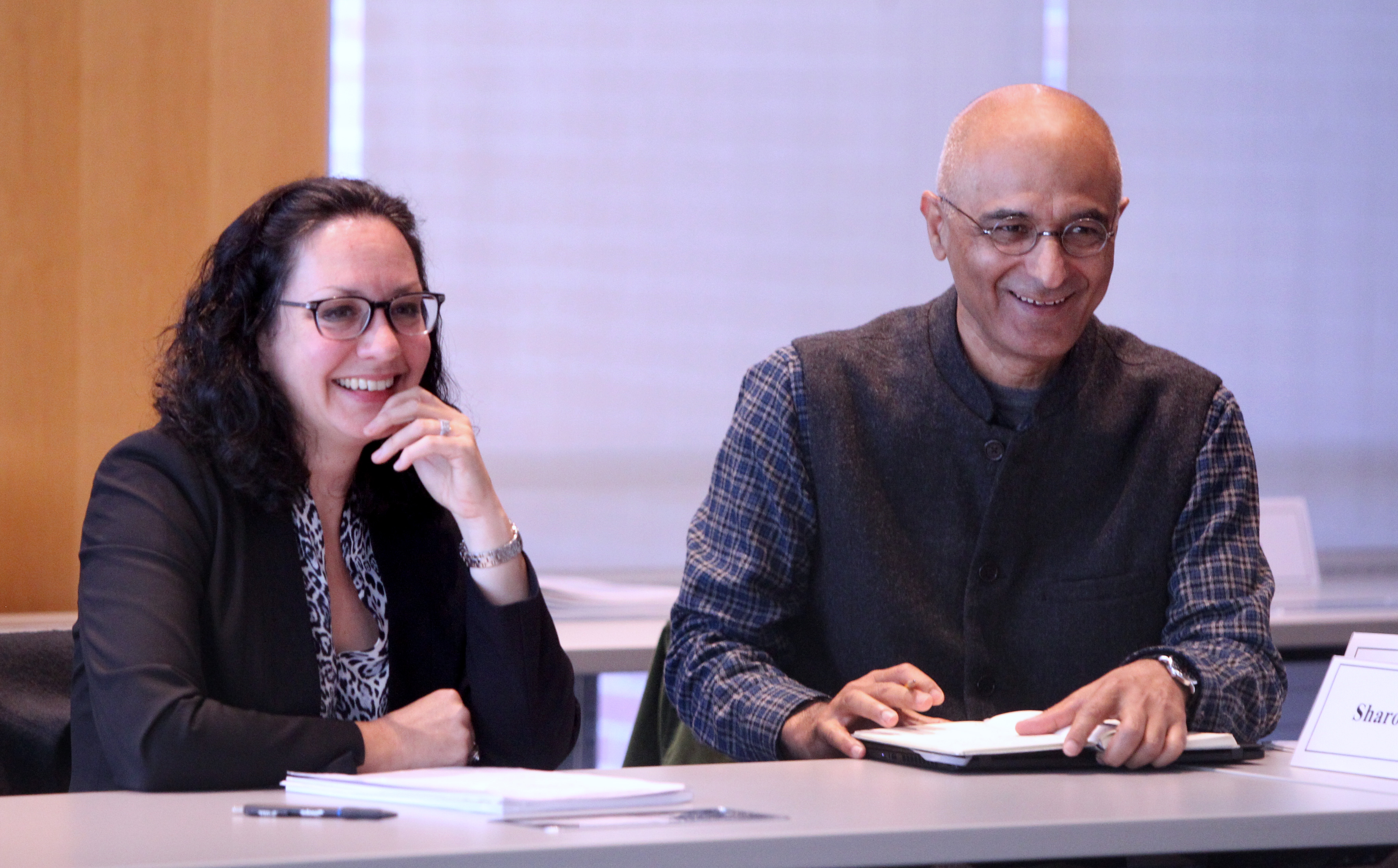
Igor Moric, a researcher at SGS and a lead organizer of the 2023 School, said “Nuclear weapons raise complex technical and policy problems. While scientists bring a valuable technical perspective to help solve such problems, it is also important to provide them with the tools to understand the wider societal impact of nuclear weapons and teach them how to engage with nuclear weapon policy-making processes.”
Emma Houston, a graduate student at the University of Tennessee pursuing a PhD in nuclear engineering, described the School as “a great week,” because “I have learned so much over the last few days and have gotten the opportunity to learn from many different perspectives. I look forward to keeping in touch!”
Sarah Thiele, a PhD student in Princeton’s Department of Astrophysical Sciences, saw the School offering “a fantastic program”. “It’s been a valuable learning experience, and an opportunity for new friendships and collaborations to blossom,” she said.
For Hugh Irving, a PhD candidate at University College Dublin in Ireland , studying computer simulations of aerodynamic effects, an appeal of the School was its diversity and focus on making an impact in the world. “Both the team at SGS and the participants in the School came from a range of locations and backgrounds” he said. “Rather than just the novelty of the research, the presentations were also focused on its wider impact. This encourages early career researchers like myself to consider how their future research could have greater political or social impact.”
J. Thokozile Kabini, an SGS pre-doctoral research fellow from South Africa, explained that the School will help focus her career and better understand the impact of her scientific work. “As someone with a scientific background, I gained valuable knowledge from the presenters and experts at the school,” she said. “This knowledge will greatly benefit me as I pursue my goal of becoming a researcher in global issues.”
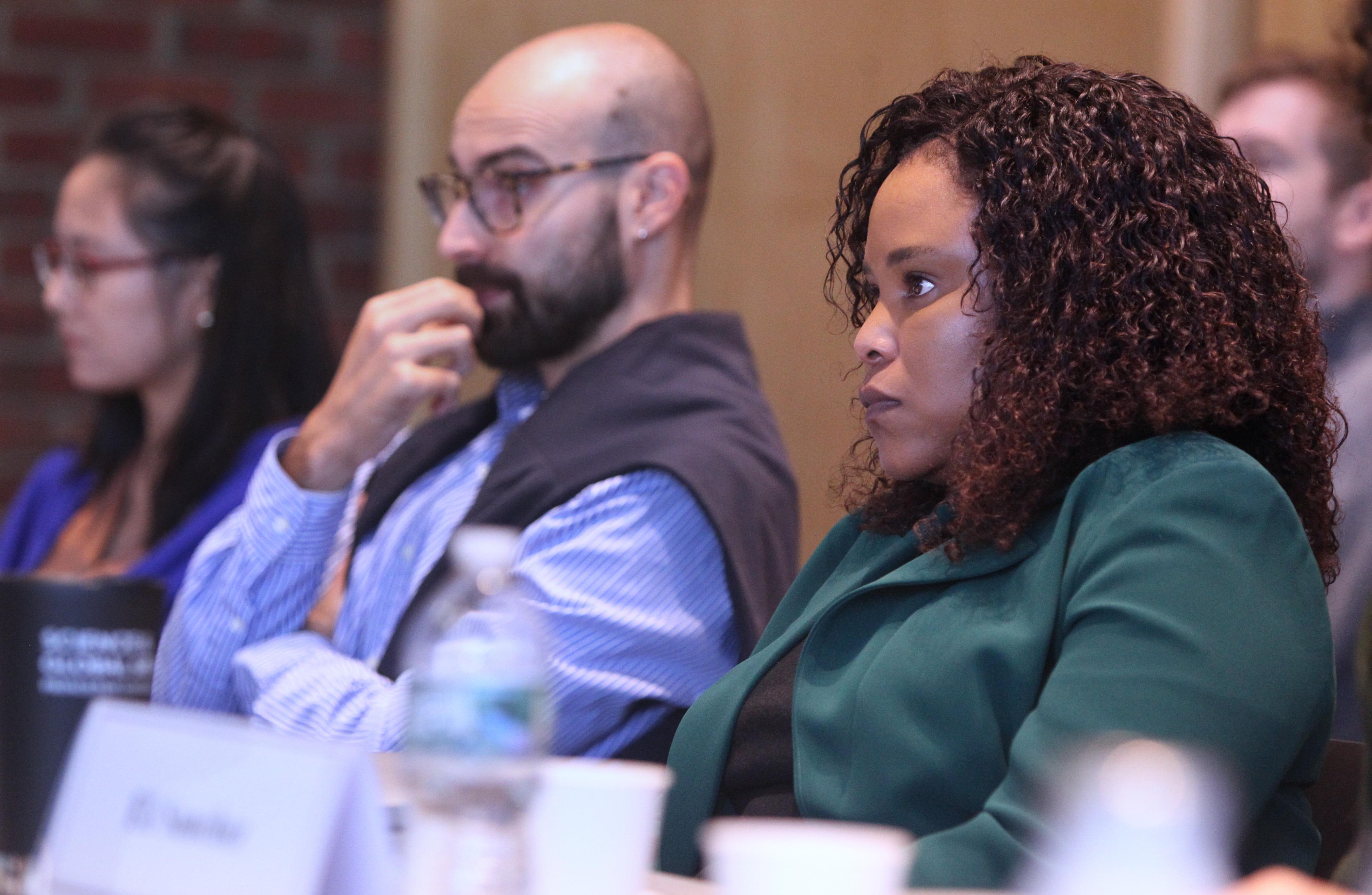
Ryan Nesselrodt, who recently earned a PhD in physics from Georgetown University, said “The experience was wonderful. It showed that one can make a successful career bringing technical skills to bear on questions of immense societal importance.” For him, “The best and most impactful part of the School, however, was the opportunity to meet and make connections with some of the most talented and inspiring young people around the world. Meeting and getting to know the participants made me hopeful for the future, and inspired me to continue finding ways to apply scientific thinking to tough social and policy questions. It also led to relationships I hope will continue into the future.”
